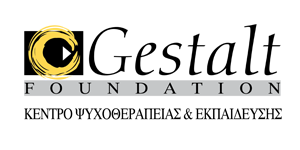The Gestalt Foundation Psychotherapy & Training Center practices a fundamental concept of Gestalt therapy, “creative adjustment” and in order to address current needs, created a new modified and flexible training program offered by the Thessalonica branch. It consists of thematically oriented subjects and is divided in two courses. Its goal is to teach the theory and methodology of Gestalt therapy.
The difference between this program and the already existing 4year program is the flexibility in the time of attendance and that is organized thematically. Furthermore, the difference is that it remains open (Course A) throughout the current academic year.
Flexible Training Program Participation Conditions
- For psychotherapists, a degree or certification of studies in mental health, social or humanities courses.
- Professional license if applicable.
- Individual interview
- Application Form and CV
- 2 Reference Letters from mental health professionals (professors, directors, supervisors).
Flexible Training Program Content and Structure
The program is divided into two courses which include: Course A: the first and second thematic field and Course B: the third and fourth thematic field.
Course A covers the basic principles and methodology of Gestalt psychotherapy approach while Course B further explores issues of clinical practice and supervision.
According to the European training standards set by the E.A.G.T. the program consists of 1450 hours and includes:
- 600 hours theory, methodology and practice,
- 150 hours supervision
- 300 hours individual development
- 400 hours clinical practice
Details:
COURSE A: (1ST & 2ND THEMATIC FIELD)
- Theory and Methodology (238 hours)
188 hours of theory and methodology
There are divided into 2 thematic fields: 94 hours each field. Trainees study the philosophy and principle of Gestalt psychotherapy. They explore concepts such as phenomenology, figure & ground, contact, polarization, organism-environment, resistances, unresolved issues, theory of self.
Gradually trainees are taught methods such us: Experimentation, dialogue, working with dreams. Utilizing workshops, group papers, presentations and mostly experiential work within the training group the trainees are able to assimilate the theory.
50 hours theory and methodology by choice
Trainees have the opportunity to choose from a series of specialized training workshops offered by the Gestalt Foundation. The list of the available workshops is announced at the beginning of each year.
- Personal Development
160 hours Individual development
Trainees are obliged to complete 160 hours of personal development which will be distributed as follows:
- 40 hours (minimum) individual therapy
The purpose of individual therapy is the personal development of trainees and the experience of therapy through the patients’ perspective
- 100 hours group therapy
The purpose of group therapy is the personal development of the trainee in a group framework, the enrichment of the experience through the perspective of a patient’ in a group therapy situation and the understanding of the process of group dynamics in the Gestalt psychotherapy approach, which is an important element of the overall training (Duration: 2 consecutive training years in group therapy at the Gestalt Foundation).
- 20 hours participation in Gestalt psychotherapy workshops
Experiential workshops on specific topics that concern trainees in their personal or/and professional life. The list of workshops available is announced at the beginning of each year.
COURSE B (3RD & 4TH THEMATIC FIELD)
- Theory and Methodology (362 hours)
312 hours of theory and methodology
Allocated between the 3rd & 4th field and more specifically as follows:146 hours in the 3rd and 166 in the 4th field. During these hours trainees explore concepts such as diagnosis, therapeutic relationship, transference and counter transference, paradoxical theory of change.
Furthermore, trainees gradually learn methods such as: working with groups, working with couples, working with body, research.
Utilizing workshops, group papers, presentations and mainly experiential work within the training group, trainees are able to assimilate the theory.
50 hours theory and methodology by choice
- Supervision
150 hours Supervision
Supervision begins during the 2nd course of the program (clinical orientation) and is divided in
- Individual (minimum 75 hours)
- Group (75 hours). These 75 hours take place within supervising groups according to the needs of the trainees’ clinical practice.
Trainees through supervision are encouraged to assimilate the theory and knowledge to their work as therapists. Also, through supervision and clinical practice they explore issues such as therapeutic relationship, transference, counter transference, parallel process, personal style and boundaries.
Supervision is recommended beyond the end of the training program.
- Personal Development
140 hours Individual development
Trainees are obliged to complete 140 hours of personal development which will be distributed as follows:
- 60 hours of Individual therapy
- 50 hours of group therapy. These hours are added to the group therapy hours of the Course A and the trainees complete them, where appropriate, in coordination with their 3rd thematic field mentor.
- 30 hours participation in Gestalt psychotherapy experiential workshops.
- Clinical Practice
400 hours of clinical practice in private or public sectors
According to the E.A.G.T. requirements, clinical practice means a 400 minimum of sessions with patients (individual, group, couples, family- preferably coordinated).
Clinical Practice begins during the course B of the training program.
Specifically Clinical practice hours are considered:
- Working hours in mental health centers according to the requirements set by the Center.
- Working hours as freelancer in consulting/psychotherapy with individuals, groups, families, couples or children.
- Hours in consulting through telephone centers.
- Hours as volunteers in sectors that collaborate with the Center
The Gestalt Foundation collaborates with certain organizations to facilitate the trainees’ clinical practice. The list of these organizations is not adequate and does not cover the necessary hours of clinical practice. Trainees are responsible for completing the necessary hours. Clinical practice is confirmed through supervision (group or individual) by the Center and is ratified by the Centers’ senior trainer by written accreditation.
- Training Obligations
Trainees Obligations
Each year, trainees are required to meet their training obligations.
- Read each year’s recommended bibliography. Extensively, discussion and analysis of bibliography take place in every workshop depending on the specific subject. Trainee’s knowledge is evaluated through oral and written, group and individual papers.
- Participation in presentations, poster and group activities (observation, supervision).
- Prompt turning in of journals and papers required for each year.
- Training Completion
With the successful completion of the required hours and the turning in of the required papers, the trainee psychotherapist receives from the Center a Certificate of Attendance of the Professional Specialization Program in Gestalt psychotherapy. This allows him to submit the necessary documents to EAGT (European Association for Gestalt Therapy) and the NOPG (National Organization for Psychotherapy in Greece) to become a full member as well as the EAP (European Association for Psychotherapy) to acquire the ECP (European Certificate for Psychotherapy). Finally with the submission of the necessary documents he can become a member of the HAGT (Hellenic Association for Gestalt Therapy).
A trainee who has completed their 4year training but hasn’t completed their obligations and hasn’t received the certificate of attendance from the Center is not allowed to use the title of Gestalt psychotherapist.
The maximum time limit within which a trainee is obliged to complete his obligations required by the program is 7 years. This means 4 years of basic training and 3 more to cover all the outstanding obligations.







